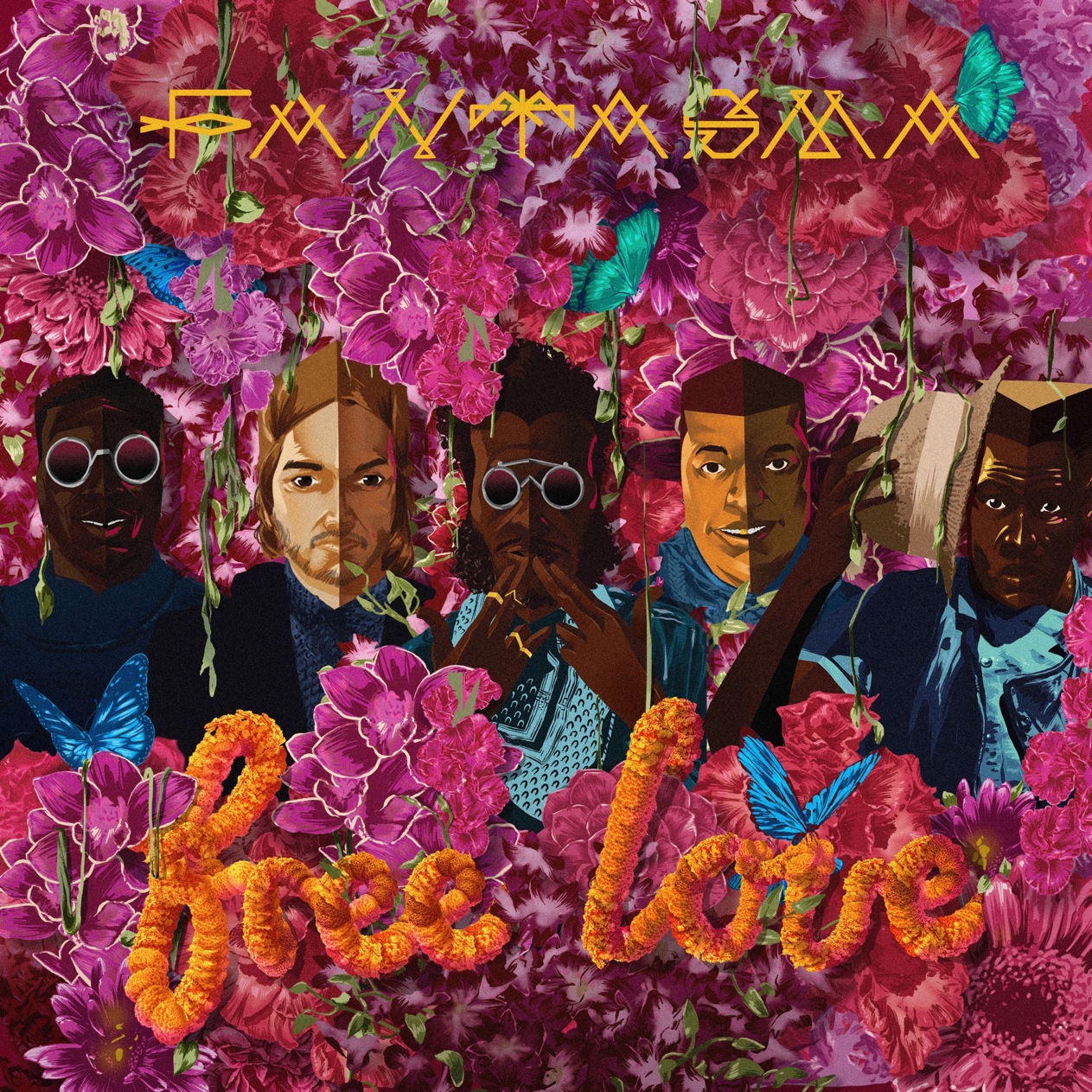It's hard not to come in rooting for Fantasma on Free Love, the first album from the multifaceted South African group, but it's also hard not to come away from it a bit confused. Over the course of the record's 14 tracks, the band mimics the mind-boggling diversity of its homeland, happily careening through everything from sunny neo-soul to noise-packed soundscapes in a quest to recreate psychedelia in its own image. That said, despite its frequent changes in mood and style, Free Love maintains a remarkably stable presence. This is a dense, frequently muscular music, thick with the looping of molten, shimmering guitars and built on the sonic intensity of dance floor optimized rhythm.
Bringing the already recombinant style of MC/producer Spoek Mathambo together with the electronic sensibilities of DJ Spoko, Fantasma is filled out by guitarist Andre Geldenhuys, drummer Mike Buchanan, and bass player Bhekisenzo Cele. And if they stuck to that lineup alone, the diversity would be mindbending. Each musician brings a remarkably different sonic identity to the table, from the tradition-infused maskandi of Cele to Geldenhuy's psych rock guitar or Spoko's hocketed dance tracks, and it's almost impossible to predict the kind of fusion this creates across Free Love. But the album is also filled with collaborators, notably Brooklyn-based singer Josiahwiseistheserpentwithfeet and the South African siblings Nandi and Nongoma Ndlovu. And this is where it's necessary to point out that it's possible to have too much of a good thing. While the tracks featuring these collaborators often stand among the strongest on the album (the woozily percussive roll of the Josiah-dominated "Sefty Belt" was chosen as the lead single for a reason), they contribute to a sense of confusion that dogs the album. There's often just too much going on here, as good ideas are piled on top of each other to the point where they barely hold together, the distinct identity of each addition blending into an increasingly confused whole.
Still, in the moments when Free Love does cohere, it works brilliantly. "Damn," which also features the talented Josiahwise, is a perfect example of everything this band can do. High-pitched guitar flourishes slip between eight-bit arpeggiations, while Spoek declaims over intricately stuttering rhythms. Similarly excellent is "My Wave," a melodic cruise over big-beat drums and chiming guitars, or "Shangrila," which rides gumboot-derived licks and brilliant bass articulation to summery pop perfection. Really, there aren't any tracks here that don't offer at least some kind of remarkable experimentation. Whether it's the politically tinged sound collage of the Hendrix-drenched bonus track "Devil's Gospel" or the transition between the Malombo-style verse and the hard-rock gospel choir chorus of "Higher Power," there's always something fascinating going on.
South African pop isn't confined to the deeply rooted folkloric traditions of the ethnically diverse nation, but also reflects the fact that the country has long had one of the world's strongest record industries. Despite nearly endless political obstacles, tradition and pop have intertwined for decades, allowing artists to create records able to fit seamlessly into the most up-to-the-moment reaches of the charts while also remaining in deep dialog with more local forms. And while there are certainly national stars, it is often difficult to speak of a South African mainstream--there are simply too many local scenes that command the allegiance of one city, neighborhood, or tribal affiliation. As a result, the sheer variety of South African music can be almost as bewildering to musicians within the nation as it can be to listeners on the outside.
It may be against (and in favor of) this diversity that Fantasma's record should be understood. Free Love isn't the product of a group confidently bringing its settled cultural forms to the wider world. Instead, it reflects the wide-eyed excitement and voracious exploration of a group of musicians coming to grip with the vast cultural mosaic from which they emerged, and against which they are recreating themselves. It's an act of astounding sonic invention--one that can be more than forgiven for trying to fit in too many good ideas. Future albums, if they happen, will almost certainly refine things further. But for now, we have this complex, sometimes frustrating, always brilliant gem.









